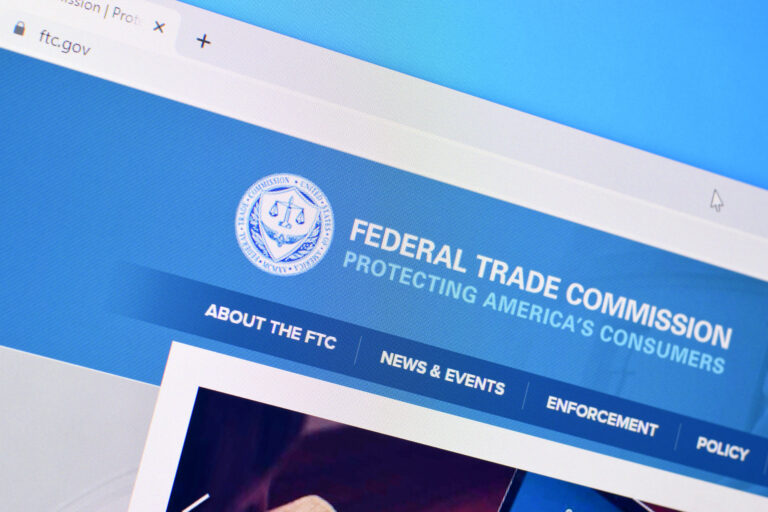
Litigation to Watch: FTC’s Non-Compete Rule Remains in Place for Now
On April 23, 2024, the Federal Trade Commission (FTC) voted to adopt a final rule (the Rule) banning essentially all non-compete agreements in employment contracts nationwide. The Rule vastly broadened existing restrictions on non-competes, even in states that had already limited their use by judicial rule or statute. In many states, like Pennsylvania, non-competes are generally enforceable if they are limited in duration and geographic extent. In some states, like Oklahoma, non-competes are completely banned. With the FTC’s Rule a uniform ban would apply to the entire country except for certain narrow exceptions.
A small tree company is taking on the FTC’s Rule and the Federal Trade Commission’s power to issue rules at all. The plaintiff tree company is represented by attorneys from the Pacific Legal Foundation, a prominent and influential libertarian legal non-profit, and seeks to eventually have the FTC’s Rule banning non-competes invalidated. Filed in the Eastern District of Pennsylvania on April 25, 2024, the tree company requested that the Rule be temporarily suspended while the litigation continued. On July 23, 2024, that request was denied and the Rule remains in place. Parallel litigation in the Northern District of Texas reached an opposite conclusion on July 3, 2024, temporarily preventing the Rule’s application to the plaintiffs who are represented by, among others, the late Justice Antonin Scalia’s son Eugene.
To be clear, while these cases do not immediately affect the validity of the FTC’s Rule in general, both courts were required to consider the plaintiff’s likelihood of success as part of their analysis, which gives a hint at the direction the judges are leaning and provides a roadmap for these cases as they inevitably wind their way towards the Supreme Court.
The arguments in both cases follow similar lines of attack but have remarkably different plaintiffs and reach different outcomes on the same issue. The Pennsylvania case is a small, blue-collar business seeking to protect its non-competes agreements for twelve employees. The Texas case is a global tax services company focusing on business taxation with nearly five thousand employees. The Pennsylvania case largely revolved around the Rule’s effect on the company’s ability to retain employees. The Texas case revolved around the Rule’s effect on the company’s trade secrets and intellectual property.
In the end, the difference between the cases could have to do with the vastly different parties and their positions but is probably also informed by the different judicial perspectives of the judges overseeing the cases. Judge Kelley Hodge in Pennsylvania is a recent Biden appointee who served as a public defender and a Title IX administrator, while Judge Ada Brown in Texas is a Trump appointee who was a prosecutor and commissioner overseeing law enforcement for the state of Texas.
Judge Hodge and Judge Brown appear to disagree about whether the FTC’s Rule is lawful. The statute that the FTC claims empowers it to issue the Rule says that it may “make rules and regulations for the purpose of carrying out the provisions of this subchapter.” The statute does not expressly grant the FTC with the power to promulgate “substantive” rules governing trade or the economy nor does it expressly prohibit the FTC from wielding such authority. Judge Hodge in Pennsylvania reads the absence of express restrictions on the FTC’s rulemaking authority to indicate that there is no restriction and that the plaintiff is unlikely to succeed on this argument. Meanwhile Judge Brown in Texas reads the absence of express restrictions on the ability to make rules – particularly because there is no penalty in the statute for violating any rules – to mean that the FTC may only issue internal procedural rules, not substantive ones governing conduct by ordinary people in their everyday lives and the plaintiffs are likely to succeed in their arguments.
The validity of the FTC’s Rule will hinge on the contrasting interpretations of the FTC’s enabling law that are captured in the dueling opinions of Judges Hodge and Brown. Other questions only considered by one of the two opinions will also come to the fore. For example, Judge Brown concluded the Rule was likely to be unlawful because it was arbitrary and capricious while Judge Hodge did not consider the issue. Judge Hodge concluded that Rule was unlikely to violate the doctrine that major rules should be left up to Congress and that it was unlikely to be an unconstitutional delegation, both issues that were not raised before Judge Brown and therefore she did not consider them.
Both of these cases however are likely to end up in the intermediate courts, one step closer to the Supreme Court.
Author: David Freckleton
Kendall PC



